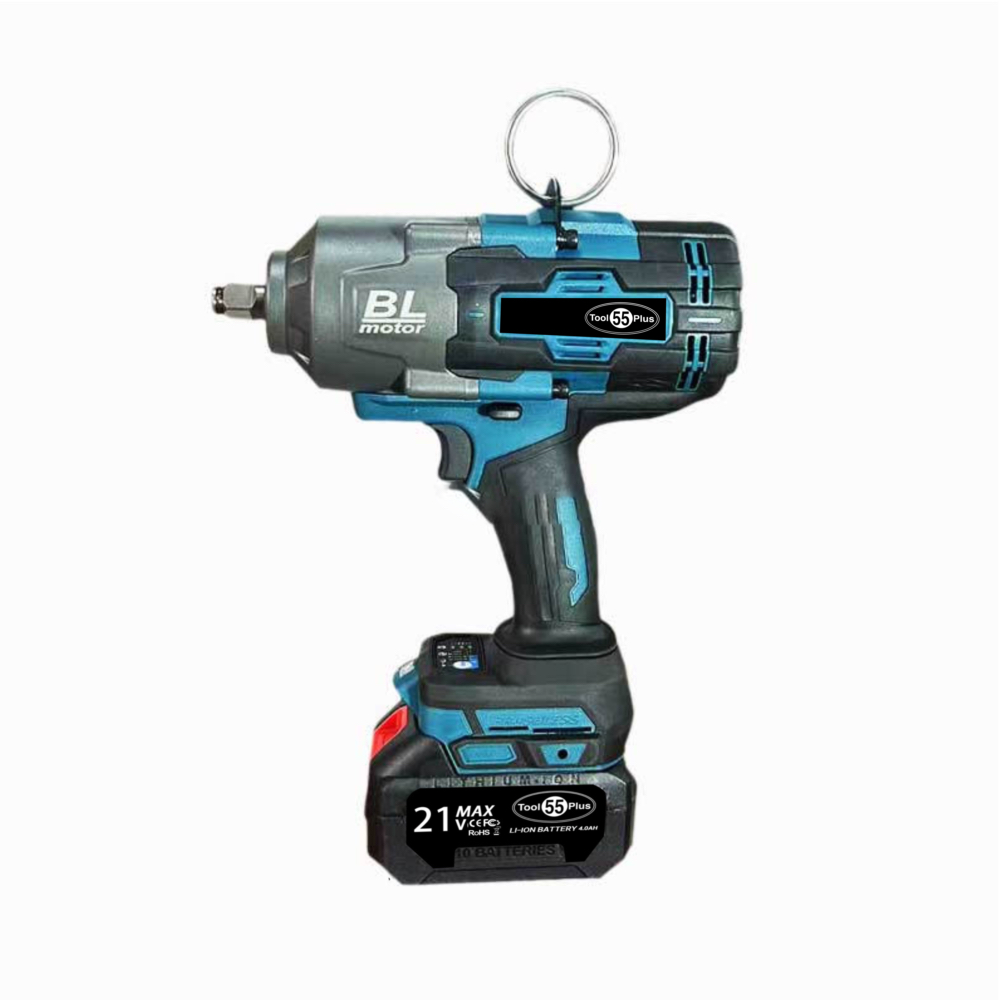
How to Choose the Right Impact Wrench for Lug Nuts
Picking the right impact wrench for lug nuts can be tricky. With so many sizes and torque levels available, using the wrong one could mean stripped nuts, broken studs, or wasted time. In this guide, we’ll break down lug nut sizes, wrench drive options, and the factors that help you choose the perfect tool for the job.
What Are Lug Nuts?
Lug nuts are the steel fasteners that hold your car’s wheels onto the axle. Their main job is simple: keep the wheel securely in place while the vehicle is in motion. A loose or improperly tightened lug nut can cause dangerous wheel detachment — which is why choosing the right wrench is so important.
Common Lug Nut Sizes
Lug nut sizes vary by car make and model. Here are the most common thread and socket sizes:
Metric Sizes
M12x1.25 → Found in many Japanese cars (Toyota, Honda, Subaru). Offers fine threading for strong grip.
M12x1.5 → Popular across Honda and Toyota sedans. Easy to install and reliable.
M14x1.5 → Common in SUVs and trucks (Ford, GM). Extra strength for heavier loads.
Imperial Sizes
7/16-20 → Found in older American cars. Fine threads for secure hold.
1/2-20 → Standard for Ford, Jeep, and light trucks. Strong and durable.
9/16-18 → Used in heavy-duty trucks for high load strength.
Socket (Hex) Sizes
17 mm → Smaller cars, often European/Asian brands.
19 mm (3/4”) → Mid-size sedans and passenger vehicles.
21 mm (13/16”) → Larger SUVs and trucks.
Seat Types
Conical (Tapered) → Most common type. Cone-shaped bottom locks securely.
Ball (Rounded) → Found in some European cars. Smooth alignment.
Flat (Washer) → Flat-on-flat surface for a secure fit.
What Is an Impact Wrench?
An impact wrench is a power tool that delivers short bursts of high torque, perfect for loosening or tightening lug nuts quickly. Most have a square drive that connects to sockets of different sizes.
Common Impact Wrench Drive Sizes
1/4-inch drive → Light-duty, 100–150 ft-lbs. Too weak for lug nuts.
3/8-inch drive → Medium-duty, 150–300 ft-lbs. Good for smaller fasteners.
1/2-inch drive → The most common for cars. 300–500 ft-lbs. Ideal for lug nuts.
3/4-inch drive → Heavy-duty, 500+ ft-lbs. Used in trucks and industrial work.
1-inch drive → Over 1,000 ft-lbs. Strictly for heavy machinery and big rigs.
👉 Recommendation: For most passenger cars, a 1/2-inch impact wrench is the safest and most versatile choice.
Key Factors to Consider
Nut Size: Match the drive size of your wrench to the socket you need.
Torque Specs: Check your vehicle manual (usually 80–150 ft-lbs for cars). Don’t exceed the required torque.
Vehicle Type: Cars → 1/2”; SUVs/trucks → 3/4”; heavy trucks → 1”.
Frequency of Use: DIY? Go lighter. Professional shop? Get more power and durability.
Battery Life: Cordless tools need enough runtime (18V–24V for professionals).
Tool Weight & Balance: A well-balanced wrench is easier to use for long jobs.
Safety Features: Look for LED lights, auto shut-off, and overload protection
FAQ
Q: Can I remove lug nuts with a 1/4-inch impact wrench?
A: No. It doesn’t have enough torque.
Q: What’s the best size for cars?
A: A 1/2-inch impact wrench covers most passenger vehicles.
Q: Can I use hand sockets with an impact wrench?
A: No. They can crack under force. Always use impact-rated sockets.
Final Thoughts
Choosing the right impact wrench for lug nuts ensures safety, efficiency, and tool longevity. For most people, a 1/2-inch drive with 300–500 ft-lbs of torque is the sweet spot. Bigger trucks and industrial vehicles may need 3/4-inch or 1-inch drives, but for everyday drivers, the half-inch is all you need.
